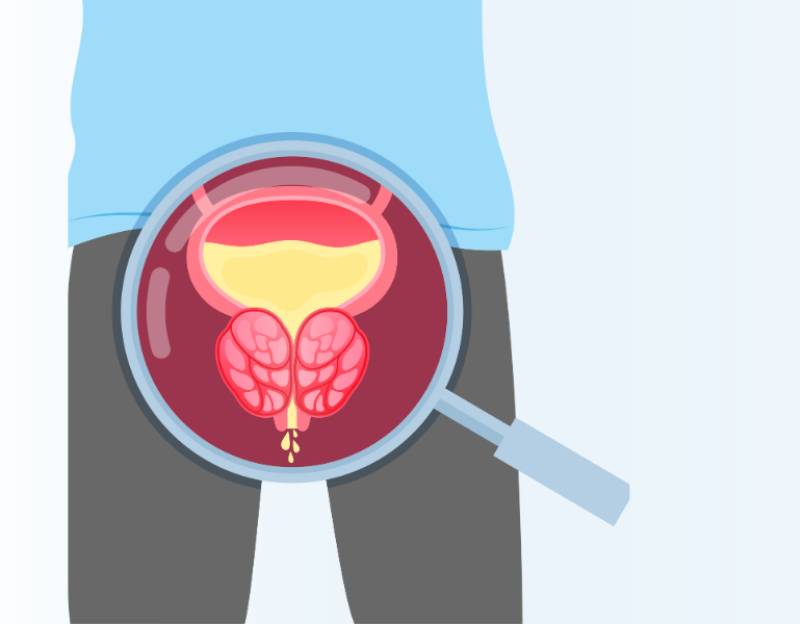
30 Jun, 2025

30 Jun, 2025

This article is contributed by Dr. Hemang Bakshi, Head of Department of Uro-oncology and Robotic Surgery, HCG Cancer Centre, Ahmedabad.
The fact that robotic technology has made cancer surgeries more tolerable, effective, and safe is beyond any shadow of a doubt.
By offering a clear and magnified view of the surgical site, robotic surgeries allow surgeons to operate on the tumor with enhanced accuracy and flexibility. Robotic surgery is one of the most promising prostate cancer treatment options, especially if the disease is in its early stages.
Lately, robotic surgery is becoming a standard cancer treatment for prostate cancer, in cases where the disease has not spread outside the prostate gland (localized).
Robotic prostatectomy, or robotic operation for prostate cancer, is associated with reduced pain and blood loss, minimal tissue damage, reduced scarring, shorter hospital stays, and faster recovery. Most importantly, the risk of infection is also significantly lower in cancer patients who have undergone a robotic prostatectomy.
Robot prostatectomy, or robotic assisted prostate surgery, is a minimally invasive surgical procedure that involves the partial or complete removal of the prostate gland in men diagnosed with prostate cancer.
The robotic surgery system comprises the patient cart, the surgeon console, the vision cart, and the EndoWrist instruments. During the procedure, the surgeon carefully directs the robotic arms, which are a part of the patient cart, to perform the procedure.
“It is important to note that not all patients with prostate cancer can undergo a robotic prostatectomy. Each prostate cancer case is carefully studied to identify the best treatment plan for it, and specialists recommend robotic surgery only if that is the most appropriate treatment.” Dr. Hemang Bakshi
Tiny incisions are made at the beginning of the procedure to insert the robotic arms and a camera. The surgeon, who sits at the surgeon console, will carefully manipulate the robotic arms to facilitate the robotic removal of prostate gland.
Here is a video of Dr. Hemang Bakshi explaining how a robotic surgical system works:
Those with early-stage prostate cancer, where the disease is confined to the organ, are considered the ideal candidates for robotic prostatectomy surgery. However, the following are the different criteria considered while recommending robotic surgery for prostate cancer:
However, robotic prostatectomy surgery may not be recommended in patients with advanced-stage prostate cancer. In some cases, it may also not be recommended in cases where patients have other underlying health conditions.
A robotic prostatectomy is often recommended for patients with early-stage prostate cancer. During this procedure, the surgeon will perform the procedure with the help of a robot, and therefore, it is also referred to as robot-assisted prostatectomy.
Doctors consider a myriad of factors before recommending robotic prostatectomy or robotic treatment for prostate cancer patients, and they include the stage, the overall health of patients, and their preferences.
Apart from the ones discussed already, oncologists are using various other treatment techniques for oral cancer treatment, and they include frozen sections, LASER treatment, and robotics.
Undergoing robotic surgery for prostate cancer benefits patients with reduced blood loss, fewer treatment-related complications, faster recovery, reduced tissue damage, shorter hospital stays, and improved quality of life.
Since this is a minimally invasive procedure, patients get to return to their routine activities at a faster rate.
Robotic surgeries offer the much-needed precision and control that a surgeon will require while performing a prostate removal surgery for localized prostate cancers. In Western countries, about 90% of radical prostatectomies are performed through robotic surgery. Even in India, the numbers are picking up, and more and more cases of prostatectomy are being performed via robotics lately.
HCG is a leading hospital that offers the services of robotic surgery for prostate cancer in India. We are supported by a team of highly skilled robotic surgeons and modern technologies to deliver the best quality care for prostate cancer patients.
By benefiting the patient in terms of fewer treatment-related complications and faster recovery, robotic prostatectomy has changed the way early-stage prostate cancers are treated.

Dr. Hemang Bakshi
MBBS, MS (General Surgery), MCh (Urology)
Head of Department of Uro-oncology and Robotic Surgery,
Dr. Hemang Bakshi is an accomplished urologist who has been performing radical prostatectomy surgeries for prostate cancer in Gujarat since 1997. He also specializes in robotic, laparoscopic, and open surgeries for genitourinary cancers, such as radical cystectomy for bladder cancer. Dr. Hemang has received the prestigious SIU international scholarship for advanced training in uro oncology abroad and was trained by Dr.Catalona and Dr. Clayman in St. Louis, USA, and robotic uro oncology surgeons in Orlando, USA. He has conducted the highest number of robotic surgeries in the city of Ahmedabad in private practice.
During his free time, Dr. Hemang Bakshi likes to travel across the world.
To book an appointment with Dr. Hemang Bakshi, please click here.
